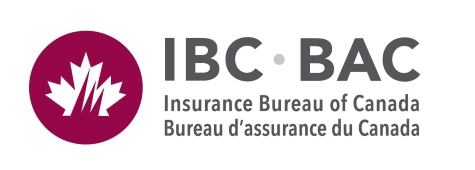IBC welcomes Commissioner's Reports on Environment
Reinforces the need to mitigate the effects of severe weather & build sustainable communities
TORONTO, May 31, 2016 /CNW/ - Today, Julie Gelfand, the Commissioner of the Environment and Sustainable Development, tabled three reports in the House of Commons that highlight the need to prepare communities across Canada for the effects of severe weather. Two of these reports – Federal Support for Sustainable Municipalities and Mitigating the Impacts of Severe Weather – reinforce previous Insurance Bureau of Canada (IBC) findings.
"The insurance industry firmly believes that climate change is a real and present danger costing government and Canadians," said Craig Stewart, Vice-President, Federal Affairs, IBC. "These reports make it clear that now is the time for action. We need a made-in-Canada approach that incentivizes homeowners to mitigate their own risks, invests in resilient infrastructure and mitigation efforts, and makes sure insurance is available and affordable to prepare for severe weather events that are now occurring more frequently."
Research explicitly shows that extreme weather events driven by climate change have increased in frequency and severity. What's more, as outlined in today's reports, Canada is not adequately prepared for the projected increases in damage that climate change will cause. Whether it is fire or flooding, such as we have seen in recent years, extreme weather events can have both devastating and tragic results for families and communities. They can also be costly for governments and, in turn, taxpayers.
The annual economic costs of disasters around the globe have increased five-fold since the 1980s, increasing from $25 billion a year in the '80s, to $130 billion a year in 2000s. Unfortunately, Canada has not been immune to these costs. Federal disaster relief spending has risen from an average of $40 million a year in the 1970s to $100 million a year in the 1990s. This decade, it's reaching over $600 million a year. A recent report by the Parliamentary Budget Officer (PBO) also showed that Disaster Financial Assistance Arrangements (DFAA) is underfunded in the government's fiscal framework; it pegged future expected liabilities to the Federal Government through DFAA at $670 million per year due to flooding alone.
Commissioner Gelfand's findings outline the need for a strategic approach to support resiliency through funding infrastructure projects, investing in mitigation, and providing communities with the information and tools they need. The findings show that DFAA does little to encourage provinces and territories to invest in disaster mitigation. It also clearly states that floodplain maps are essential to plan new infrastructure investments and decide on priorities to improve existing infrastructure.
IBC has just completed flood risk mapping for all 10 provinces, showing that 19% of Canadian households are at risk of flood. Based on these results, IBC believes that Canada's forthcoming National Climate Strategy must include a national flood program.
"IBC is pleased that the federal government has agreed with all of the findings and recommendations in these reports," said Stewart. "It once again shows their continued commitment to preparing Canada for the increase in severe weather events that stem from climate change. We look forward to furthering these discussions with governments across the country over the coming months."
For more information about IBC's work on severe weather and flooding, visit www.ibc.ca.
About Insurance Bureau of Canada
Insurance Bureau of Canada (IBC) is the national industry association representing Canada's private home, auto and business insurers. Its member companies make up 90% of the property and casualty (P&C) insurance market in Canada. For more than 50 years, IBC has worked with governments across the country to help make affordable home, auto and business insurance available for all Canadians. IBC supports the vision of consumers and governments trusting, valuing and supporting the private P&C insurance industry. It champions key issues and helps educate consumers on how best to protect their homes, cars, businesses and properties.
P&C insurance touches the lives of nearly every Canadian and plays a critical role in keeping businesses safe and the Canadian economy strong. It employs more than 120,000 Canadians, pays $8.2 billion in taxes and has a total premium base of $49 billion.
For media releases and more information, visit IBC's Media Centre at www.ibc.ca. Follow IBC on Twitter @InsuranceBureau or like us on Facebook. If you have a question about home, auto or business insurance, contact IBC's Consumer Information Centre at 1-844-2ask-IBC.
If you require more information, IBC spokespeople are available to discuss the details in this media release.
SOURCE Insurance Bureau of Canada

To schedule an interview, please contact: Steve Kee, Director, Media & Digital Communications, 416-362-2031 ext. 4387 (office), 416-841-5669 (after hours), [email protected]

Share this article